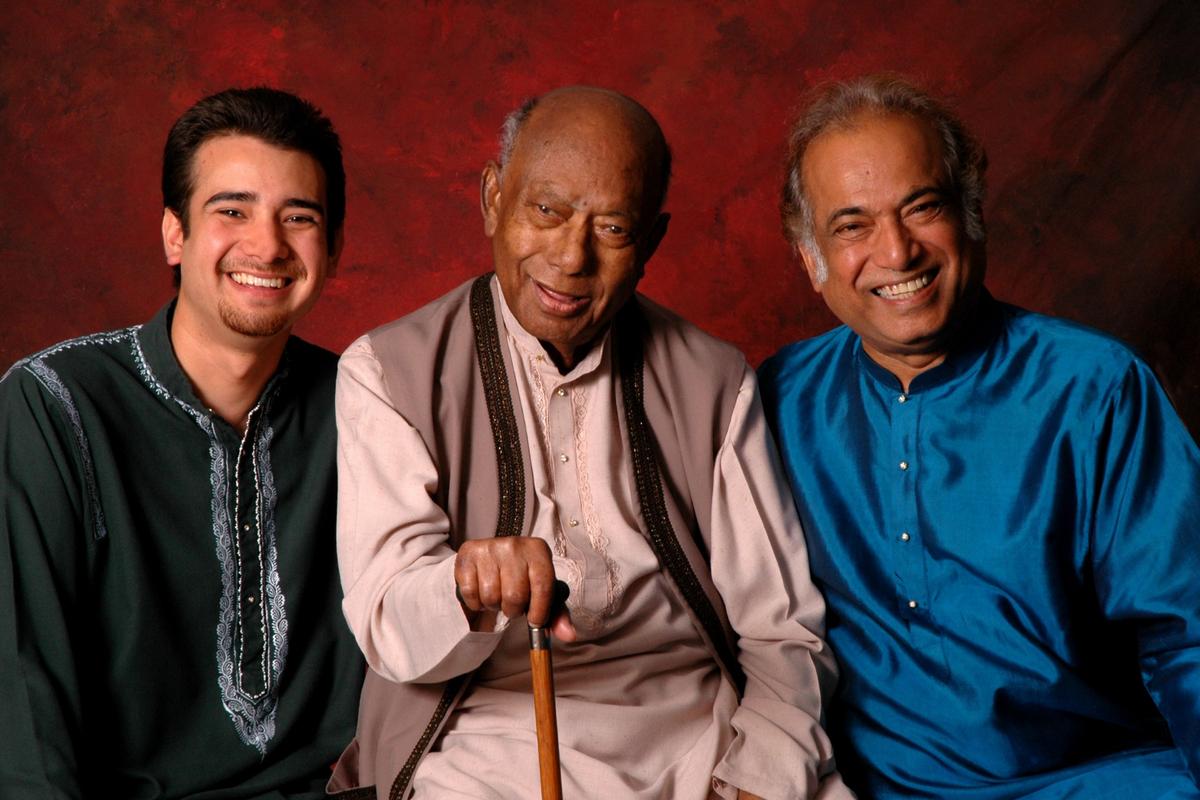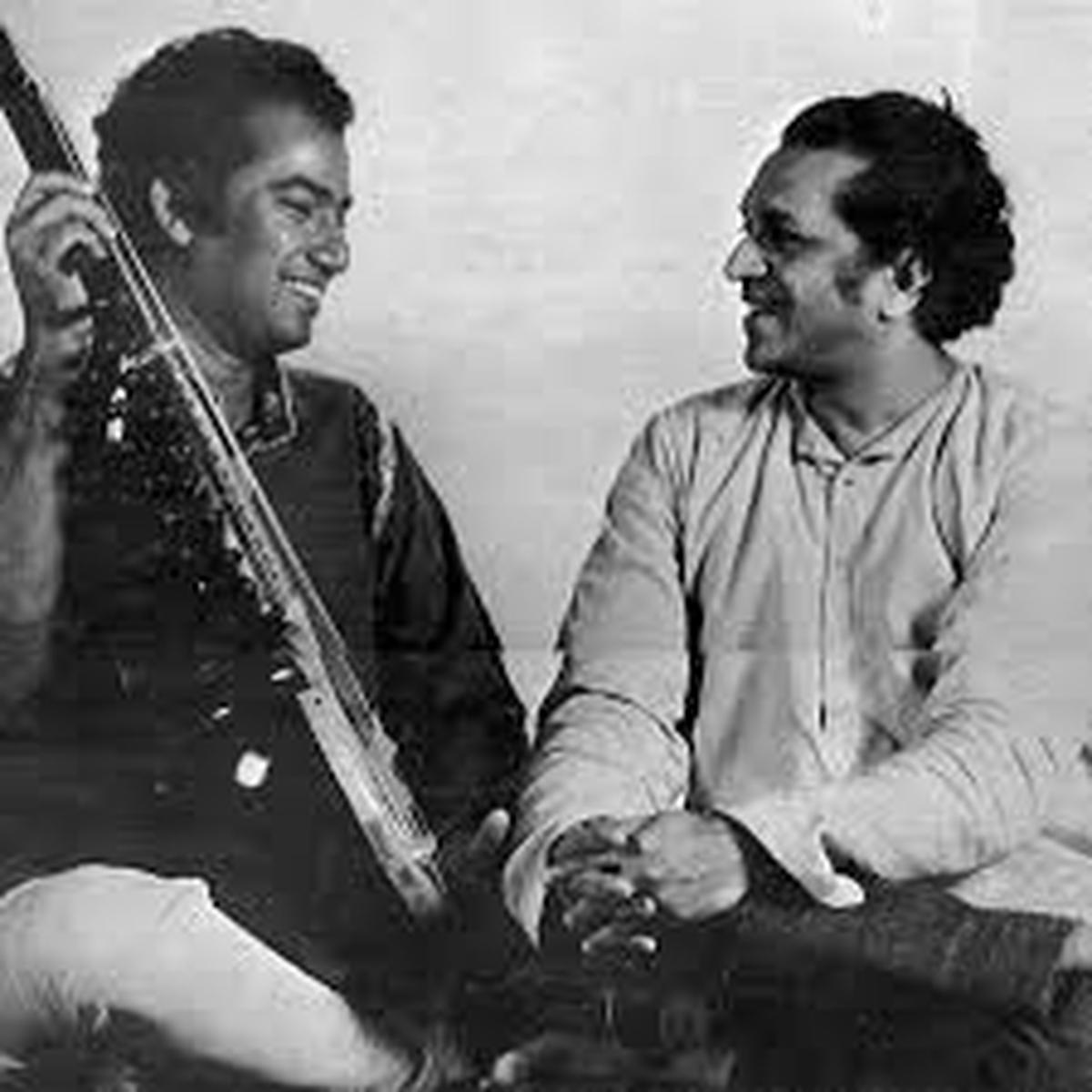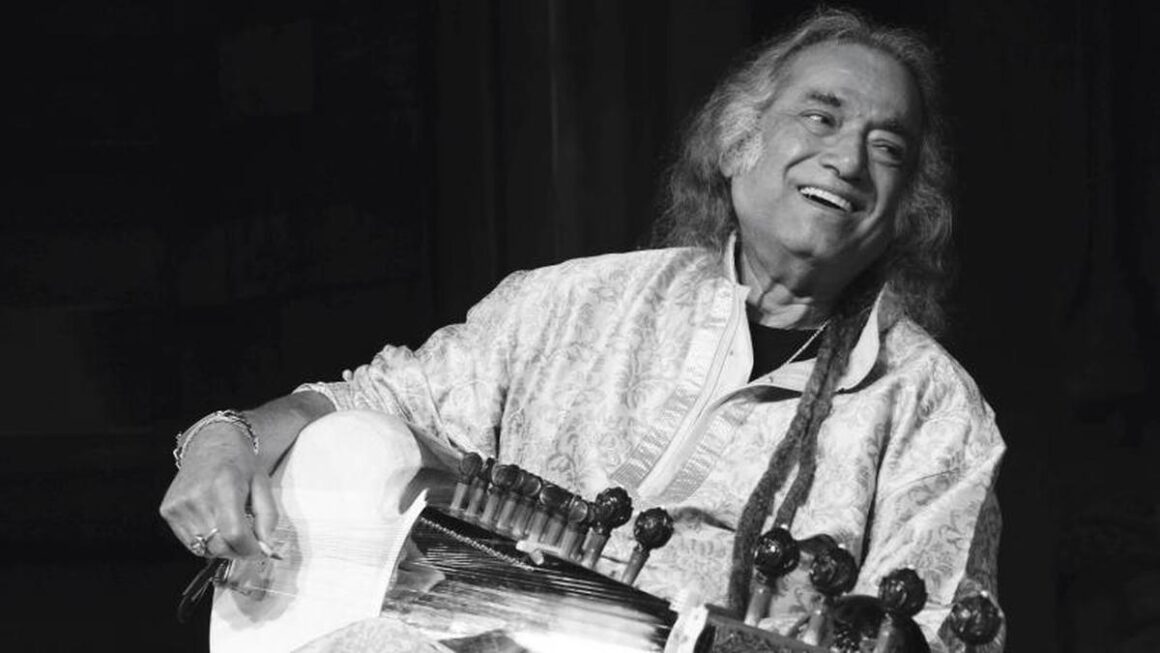
Ustad Aashish Khan was the son of Ustad Ali Akbar Khan
| Photo Credit: Special Arrangement
Ustad Aashish Khan, 85, who passed away last week, was not just the grandson of Baba Allaudin Khan, founder of the Senia Maihar instrumental gharana, but he was also the last of the musicians to have received taalim from the doyen. Born in Maihar, Ustad Aashish Khan received his initial training from his grandfather, and then his aunt Annapurna Devi, before learning from his father Ustad Ali Akbar Khan. He remained in Maihar until he was 17, and later joined his father in Calcutta, in the mid 1950s. His close interactions with Pt Ravi Shankar also left their imprint on his music. From 1968, he made America his home.
Apart from being a link in this venerable chain, Aashish Khan was a magnificent musician in his own right. He moved out of the shadow of his great Gurus, and carved his own style on the sarod — he was bold yet traditional. Just the way he held the sarod — with perfect positioning of his hands — revealed his mastery.
Aashish Khan’s interactions with several western musicians, including George Harrison, Alice Coltrane, pianist John Barham and Eric Clapton, brought in a new perspective to his playing.

Ustad Ali Akbar Khan with his sons Alam and Aashish
| Photo Credit:
Courtesy: Alam Khan
Aashish Khan was a very confident musician, secure in his music and open to ‘jugalbandis’ with his peers and seniors. Some of his popular collaborations have been with sitarists Pt. Nikhil Bannerji, Ustad Shujaat Khan and Pt Indranil Bhattacharya, flautists Pt. Hari Prasad Chaurasia and Pt. Ronu Mazumdar and sarangi maestro Ustad Sultan Khan. The ustad was also well-known as a composer — he had scored for some Bengali and Hindi films, and also assisted both his father and Pt Ravi Shankar. Some popular films he worked on include Satyajit Ray’s Apur Sansar and Porosh Pathor, Richard Attenborough’s Gandhi , Tapan Sinha’s Aadmi aur Aurat and Tapan Mazumdar’s Balika Badhu.
During an interview with this writer last year, the Ustad spoke about working for films. “Those days, the directors were hugely influenced by classical music. They were quite discerning. So, film music was mostly raga-based and I really didn’t face a problem composing music for films. “Undoubtedly, my biggest success was Tapan Sinha’s ‘Jatu Griha (1964). I was in my late twenties. So it really was a big break for me.”
The experience of working for Indian films helped The Ustad in forming Shanti, a pioneering East-West band, when he moved to the U.S. Sadly, when it disbanded, Ustad Zakir Hussain went on to launch Shakti on the same lines.

With Pt. Ravi Shankar
| Photo Credit:
Special Arrangement
A rare musician, Ustad Aashish had collaborated both with his father, Ustad Ali Akbar Khan, and his uncle Pt. Ravi Shankar. He shared how Pt. Ravi Shankar and his father had a different approach to composing. “Panditji lent a western touch to the pieces while my father stuck to simple harmonies.”
Ustad Aashish Khan carried with him the traditions of an earlier century. He had a treasure trove of rare ragas, including Sharad Pancham, Shubhavati and Kaushi Bhairav. Like the greats musicians in his family, he was an amazing ‘layakaar’, playing unusual taals with half and quarter beats.
Sarodist Debanjan Bhattacharjee recalls learning the rare 13-beat taal ‘jaitaal’ and the 11-beat ‘ashtamangal’.
Simple and affable, the Ustad also had a great sense of humour. Once, when he was at an intimate event in Delhi, the hostess’ dog sitting under the couch kept barking at him. The Ustad jokingly remarked, “her sur doesn’t match with mine.” A wonderful cook, he could make Bengali, Mexican, Chinese and Thai cuisines.
Ustad Aashish Khan was ever ready to share his musical insights with the younger generation. Some of his well-known disciples include his nephew Shiraz Ali Khan, Aatish Mukhopadhyay, Debanjan Bhattacharjee, Dishari Chakraborty and Dwiptanil Bhattacharjee.
Published – November 23, 2024 02:08 pm IST


Leave a Reply